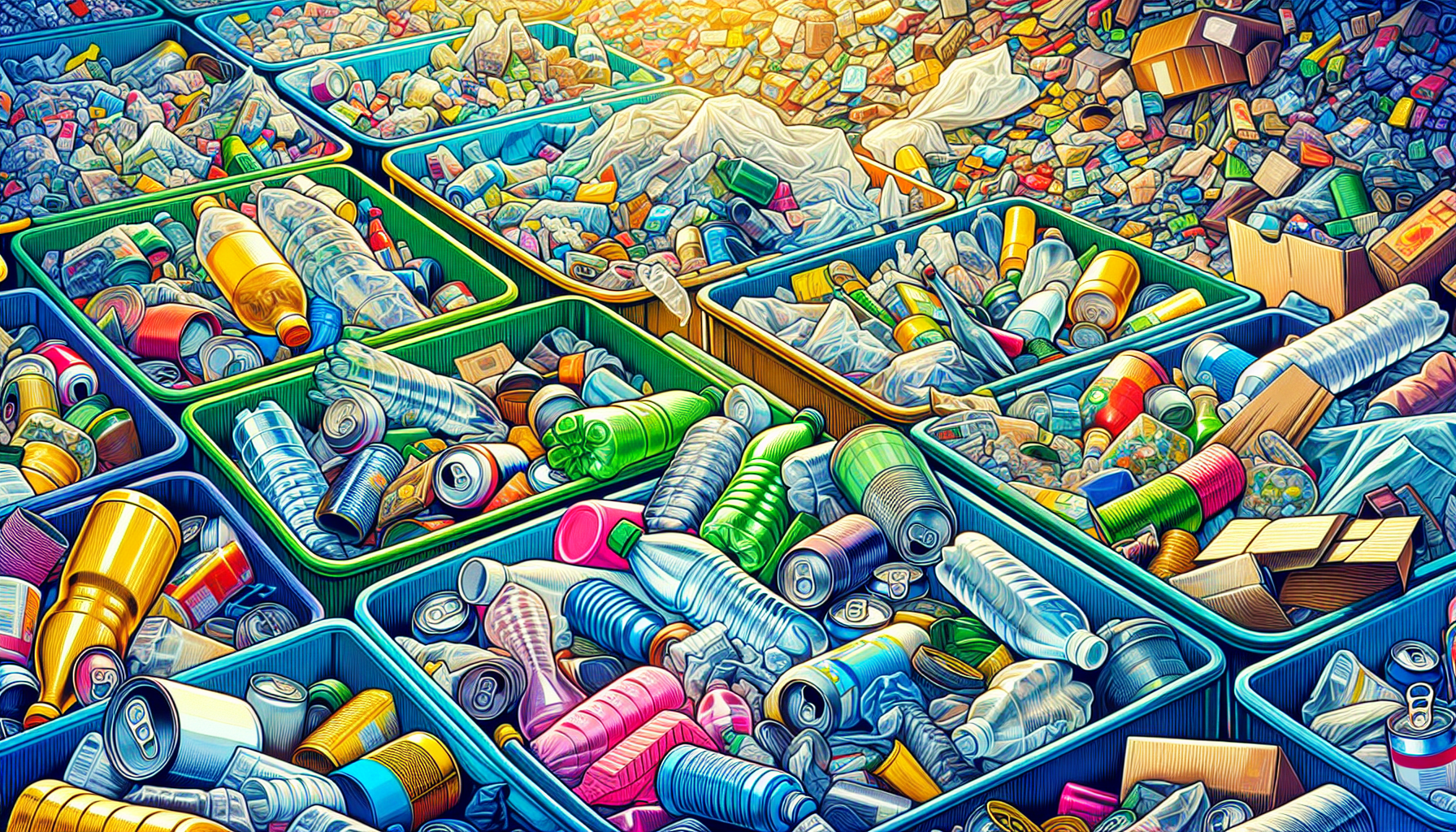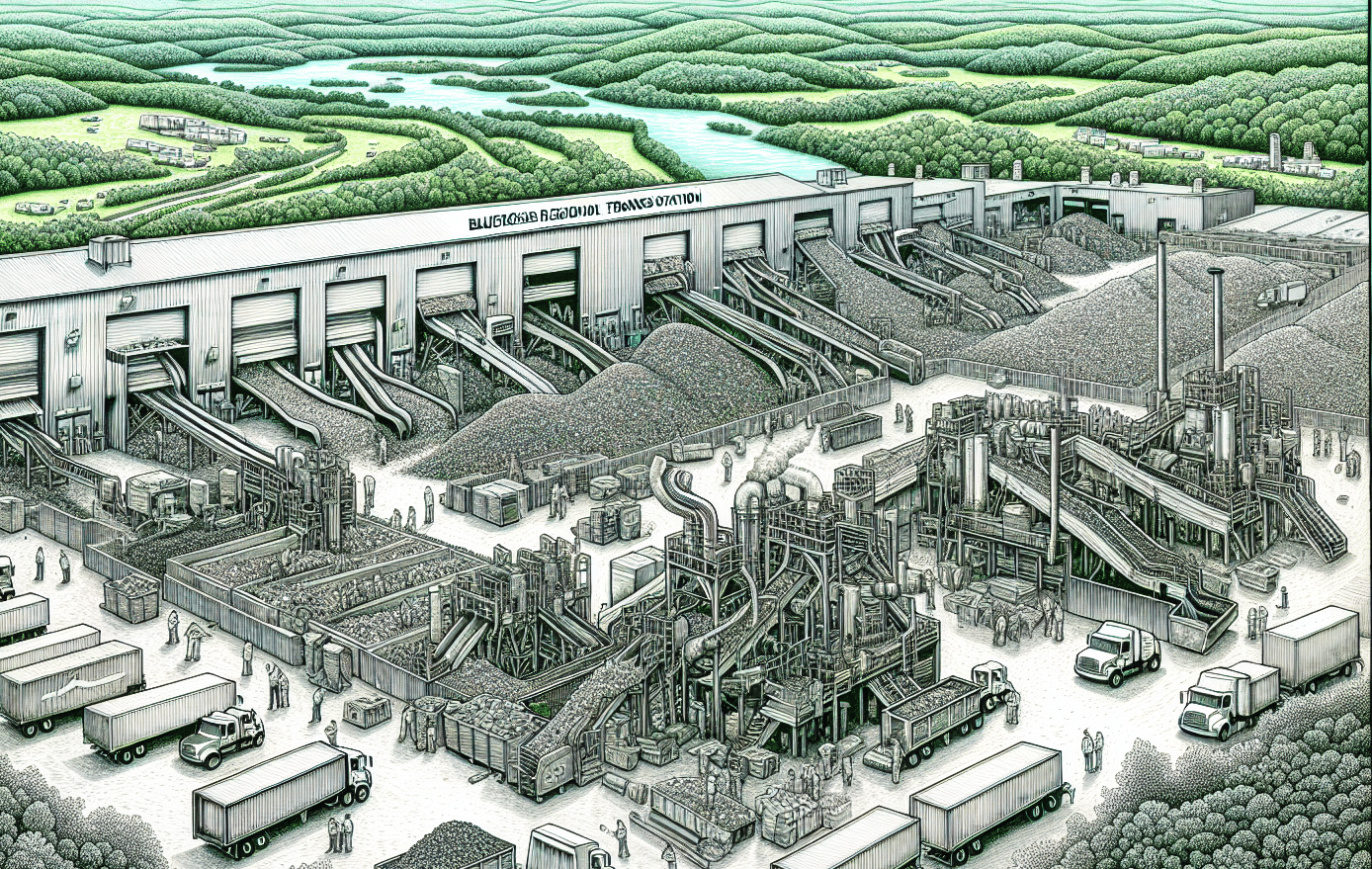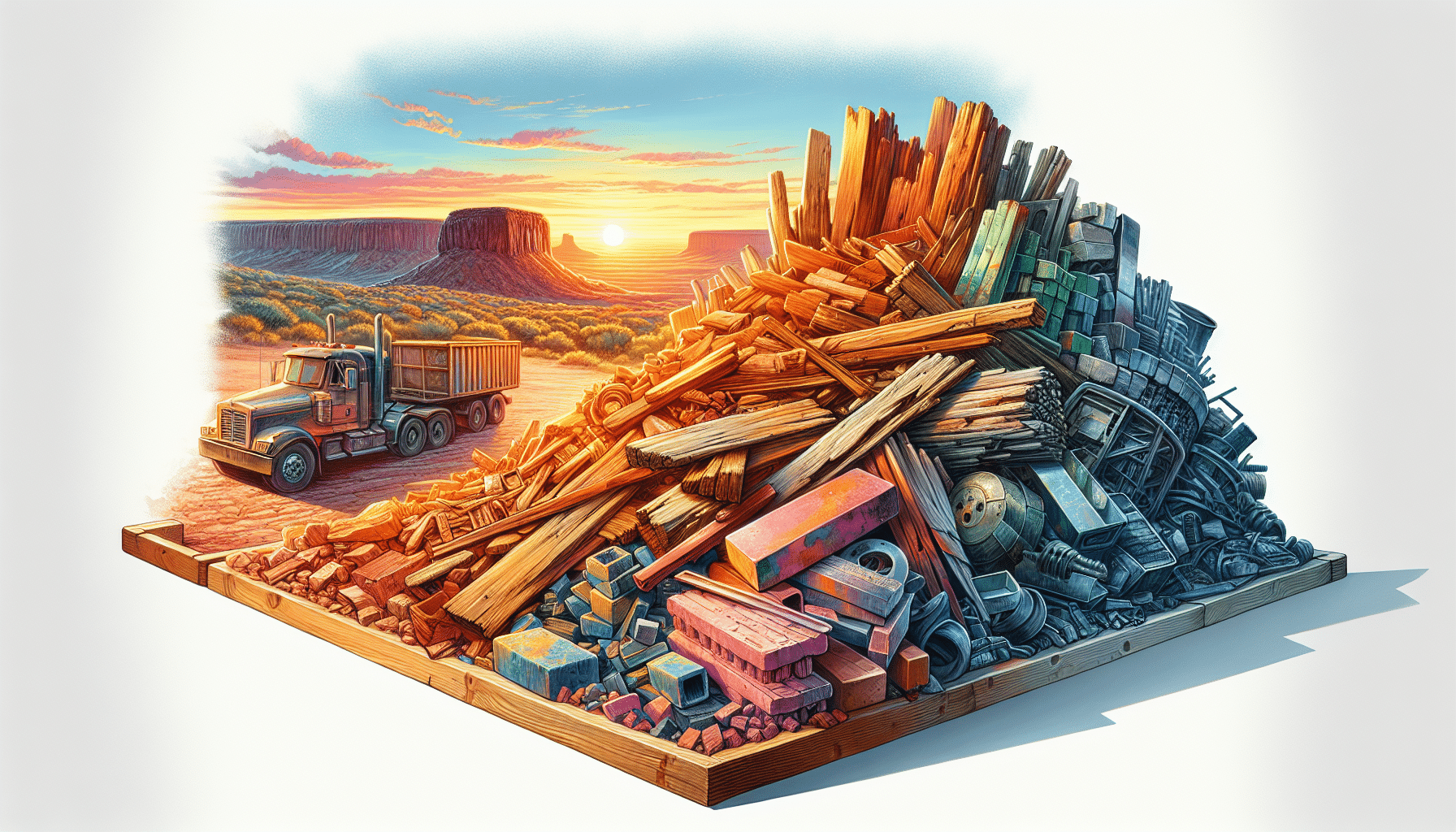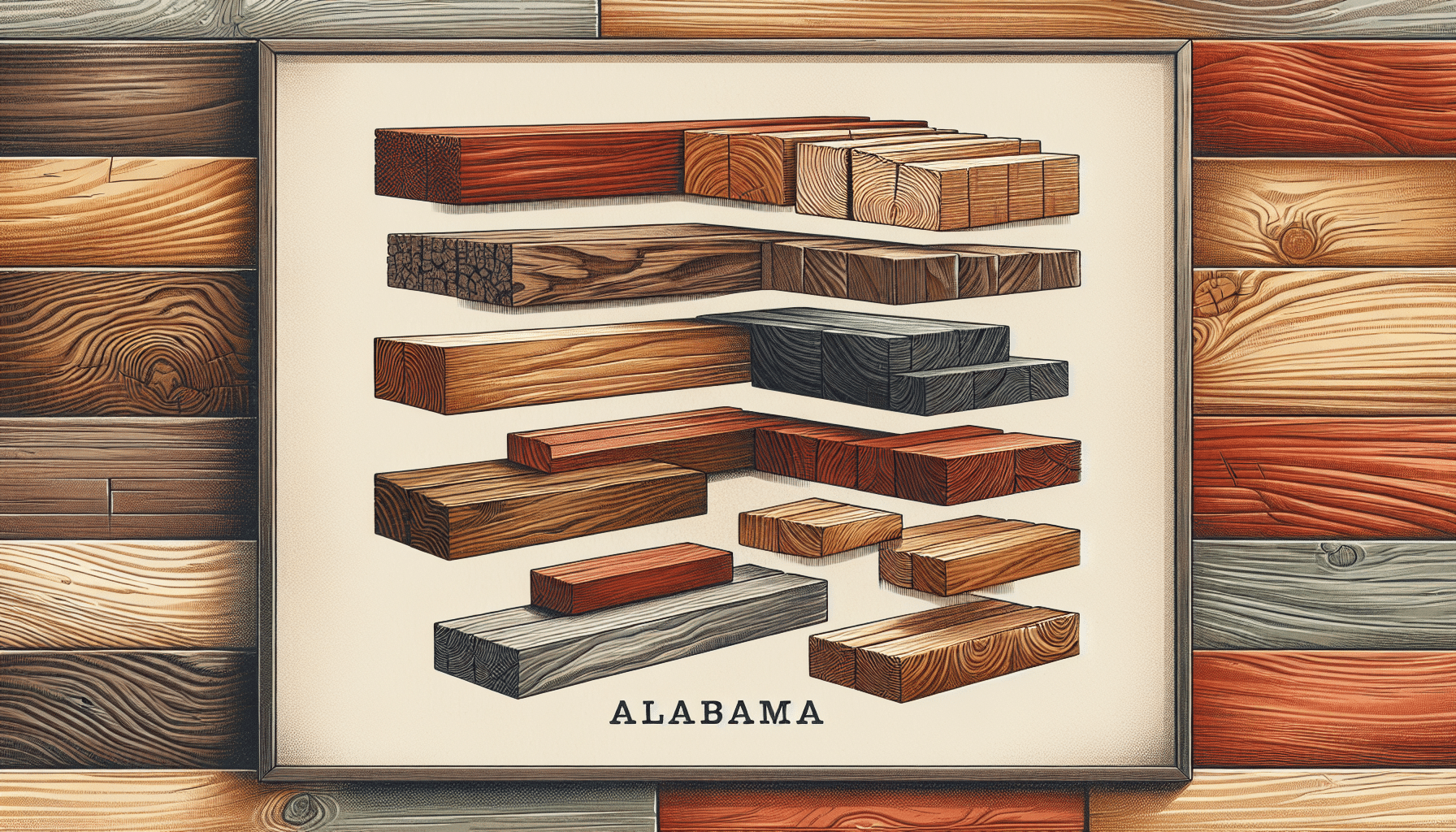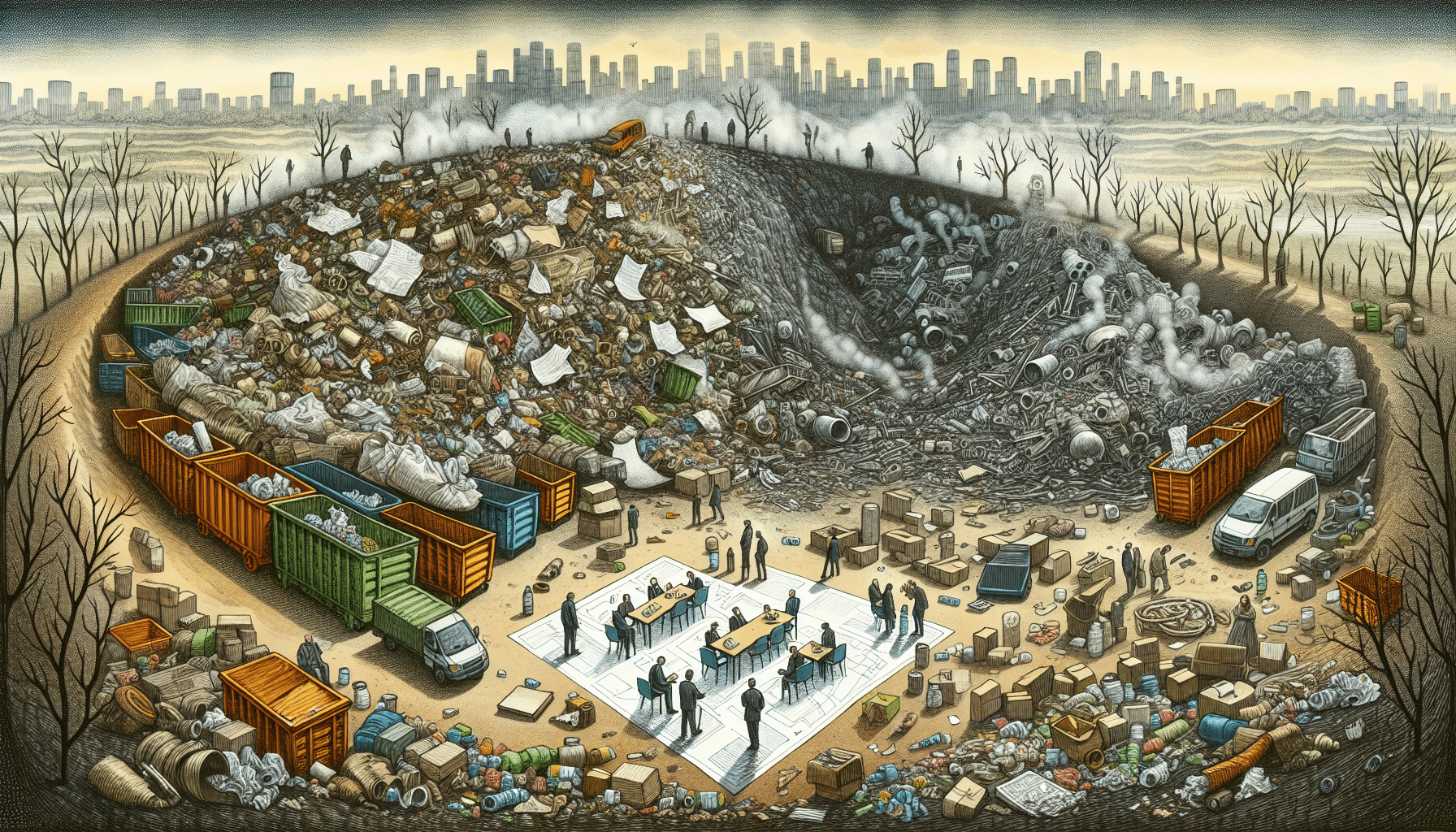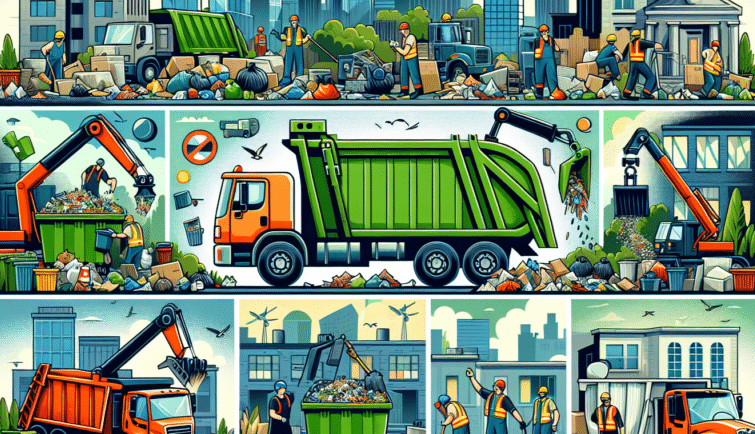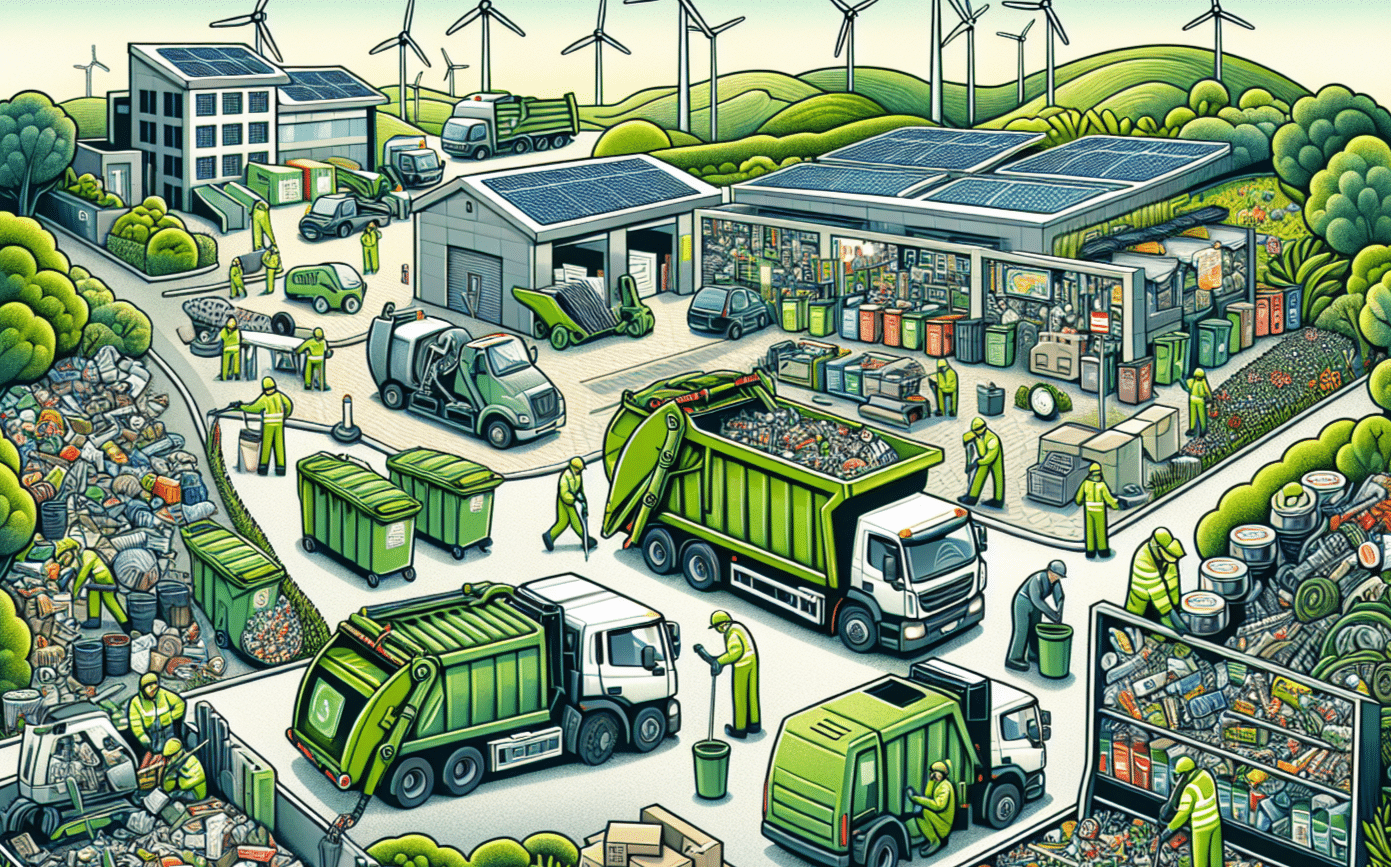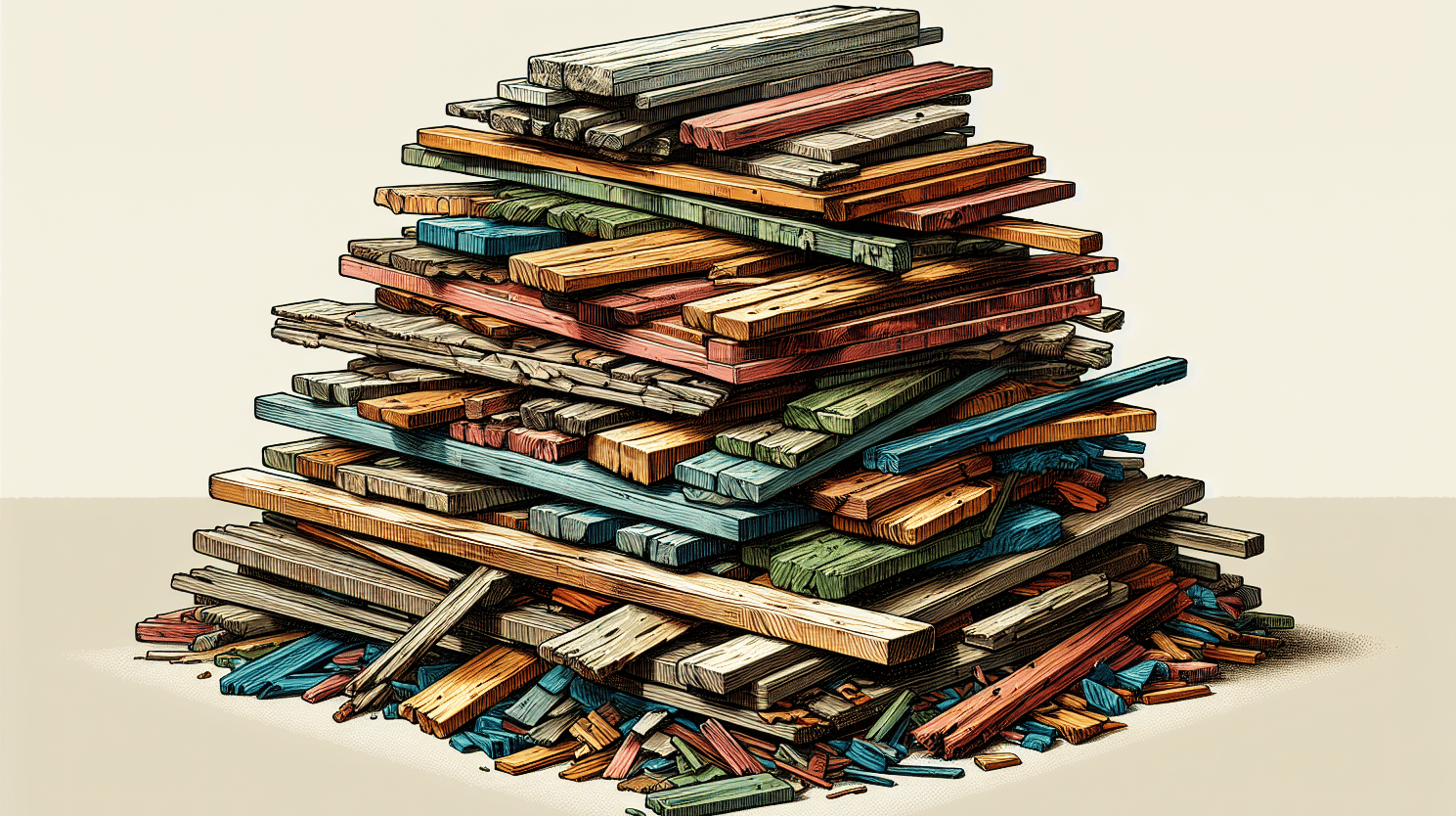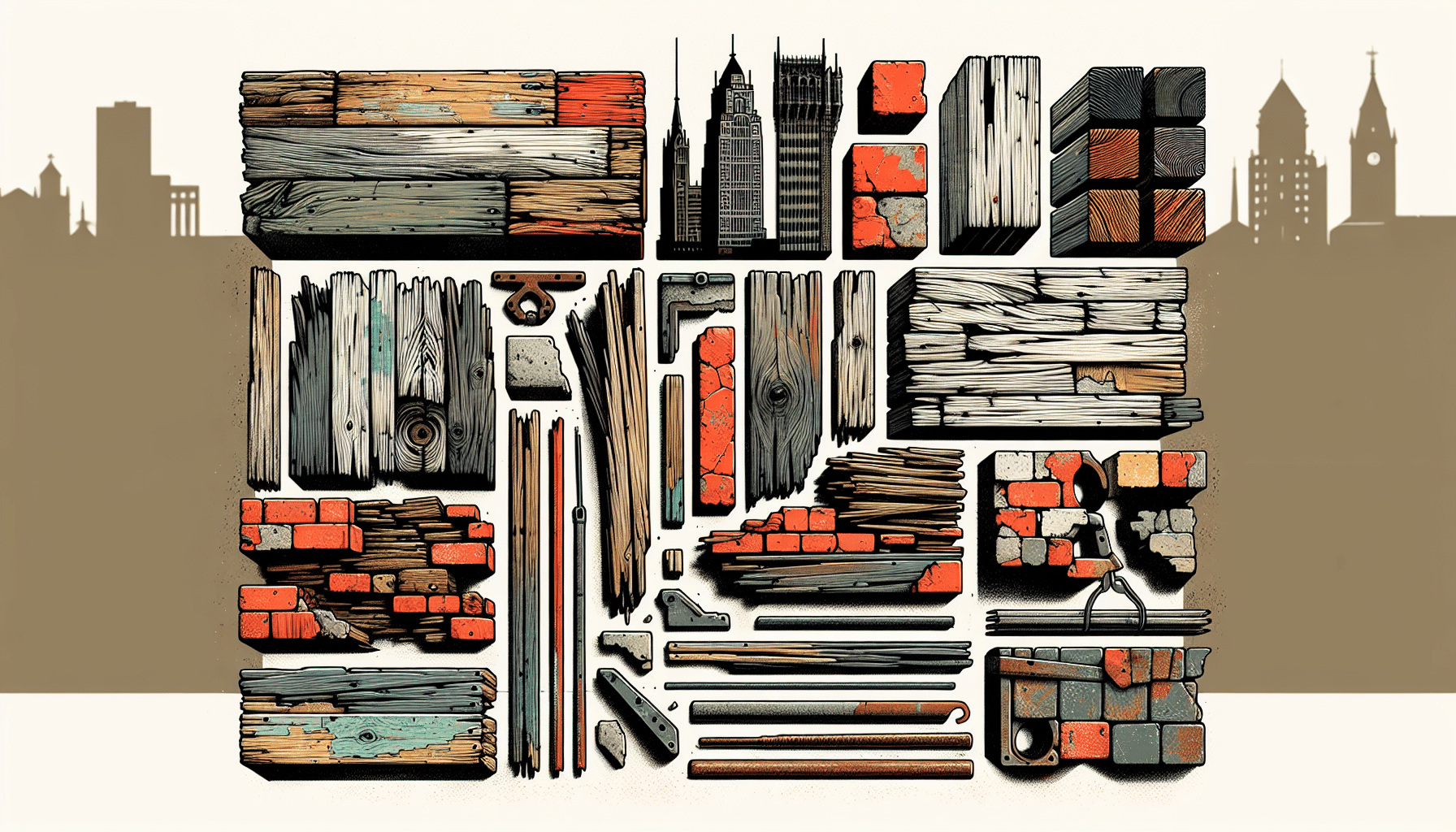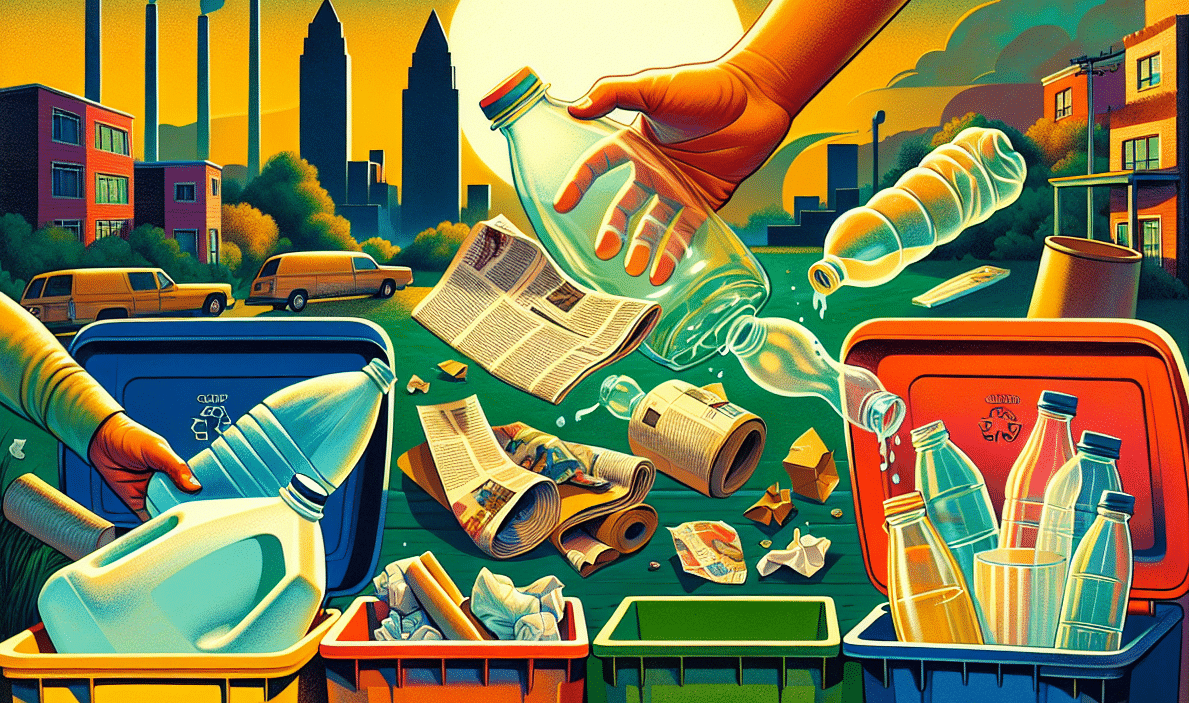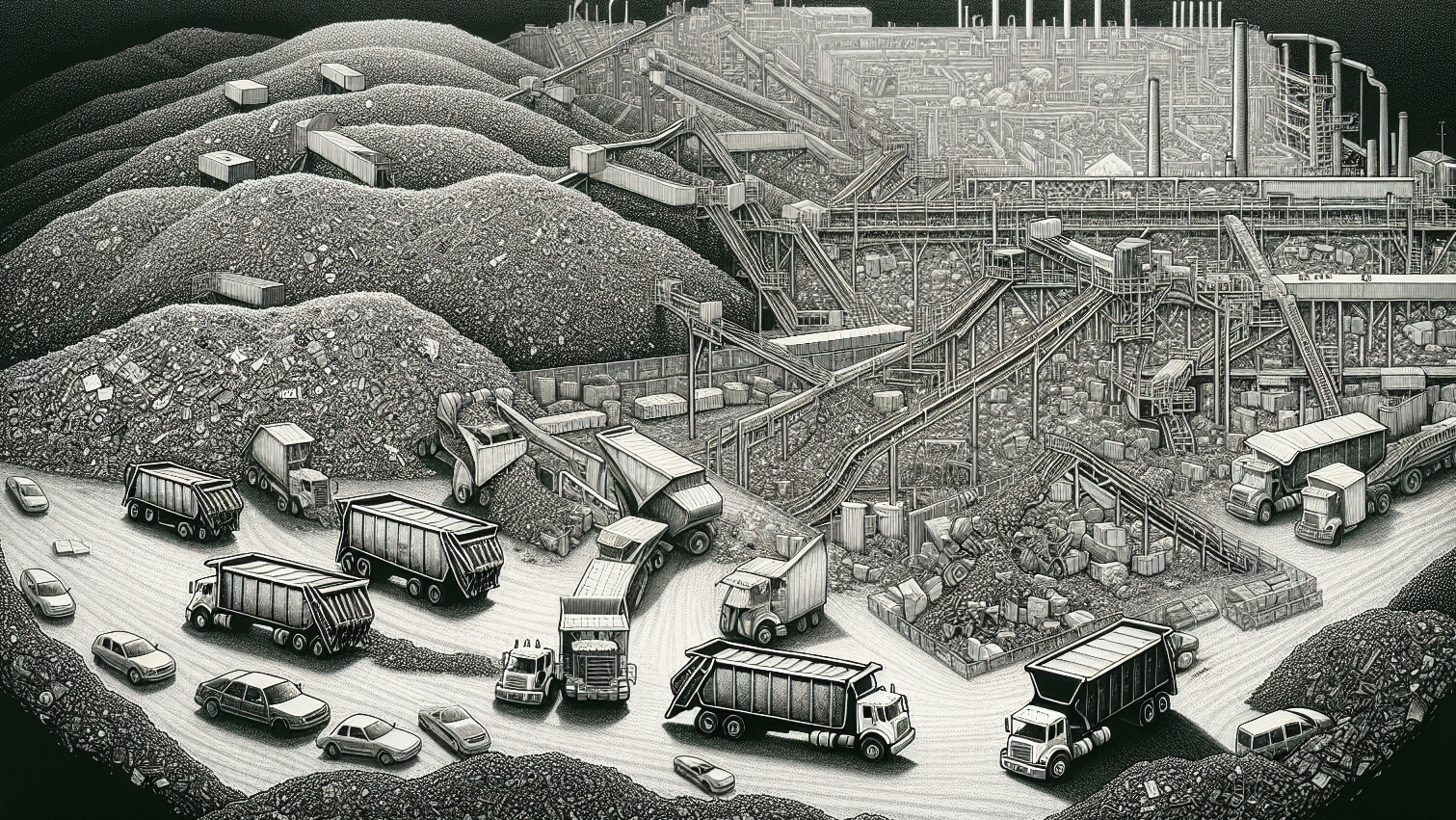Disposing of garden waste effectively is key to a healthy garden and a healthy planet. Whether it’s composting leaves, using eco-friendly bags for grass clippings, or understanding your local waste collection service, efficient garden waste management is straightforward and invaluable. This article explores the main strategies – with practical tips to neatly collect garden waste, minimize your environmental impact, and ensure your garden thrives.
Key Takeaways
- Proper segregation and composting are key for efficient garden waste management, transforming organic green waste like grass clippings and leaves into valuable compost that enriches the soil.
- Local curbside collection services and drop-off centers provide eco-friendly options for garden waste disposal. Most curbside collection services require adherence to pick-up schedules, preparation guidelines, and sometimes proof of residency.
- Professional yard waste removal services offer convenience for large-scale disposals, ongoing maintenance, or immediate needs. Factors like licensing, cost, reputation, and proximity are important to consider.
Gathering Green Waste: The Essentials
Efficient garden waste management starts with the proper segregation of materials. Designating distinct areas for different types of waste not only keeps your garden tidy but also streamlines the overall yard waste disposal process. A compost bin, for example, can help transform green waste into a valuable resource for your garden. However, non-compostable garden waste, such as larger tree trimmings, should be kept aside, ready for appropriate disposal.
Compost Bins: Turning Waste into Gold
Composting is like performing alchemy in the garden, as it changes organic waste into a useful resource. Compostable materials include grass clippings, leaves, bark, and flower blossoms. When composted, these materials decompose over time into a dark, rich organic matter. This compost acts as a natural fertilizer, enriching the soil with nutrients and improving its structure and moisture retention.
Yard Waste Bags: Bio-Friendly Options
Transitioning to more eco-friendly practices, biodegradable yard waste bags are an excellent solution for garden waste disposal. These bags, designed to decompose naturally, reduce the environmental footprint of your gardening efforts. Available in various capacities, from the more common 30 and 33 gallons to the larger 40-45 gallon options, these eco-friendly bags are crafted to be heavy-duty and tear-resistant, ensuring that even the most challenging garden debris is managed with ease.
Curbside Collection: Aligning with Local Services
Did you know that, for an annual subscription fee, your local council likely provides dedicated green waste bins for your garden waste? These bins help simplify the act of recycling, as the collected waste is often turned into compost used by landscapers and nurseries. Understanding your local municipal yard waste collection services, including pick-up days and guidelines, is essential for participating in this eco-friendly initiative.
Finding Your Collection Day
Staying in sync with your local waste collection schedule is a breeze once you know your zone. Residents are typically designated to a collection zone, such as Zone A or B, or a color-coded system, which determines the specific day that waste is picked up from the curb. After a holiday, the collection day may shift forward. If you are uncertain about your collection day, services like the Color Collection hotline can easily help you stay updated, ensuring your yard waste is ready for pick-up on the correct day.
Preparing for Pick-up
After noting your collection day on the calendar, the next step is to prepare your waste for pick-up. Grass clippings, leaves, and weeds should be placed into designated yard waste carts or sturdy brown paper bags. Brush and tree trimmings, on the other hand, need to be bundled and tied for easy handling.
There are size and weight limits on what you can leave on the curb. It is encouraged not to exceed these restrictions for a smooth pick-up process. For neighborhood cleanliness, make sure to place your waste on the curb no earlier than the afternoon before collection day and remove it promptly after it’s been picked up.
Drop-Off Centers: Where to Take Your Garden Refuse
Local garden waste recycling facilities are a viable solution when curbside collection isn’t available. Offering a responsible way to dispose of your waste, often at no cost, these facilities are a boon for gardeners and the environment alike. Many areas, such as Com-Til and Ohio Mulch, offer places where you can drop off your garden waste free of charge. Other compost centers may have certain restrictions and fees, so it’s always best to check beforehand.
Identifying Local Drop-Off Sites
Locating a yard waste drop-off center near you can be achieved with a simple phone call or click. Residents should reach out to your local streets division or municipal department for guidance on where you can take your garden refuse. These sites often require proof of residency or ownership, and there might be limits on how much you can bring at one time, like a pick-up or small trailer load per day.
Not all materials are accepted at every compost site, and there are seasonal operating hours to consider. Always check with the site’s regulations before dropping off your compost waste.
Private Waste Removal: Convenient Alternatives
Professional yard waste removal companies are a necessity when time is limited or the volume of garden waste is too much for an individual to manage. That’s where professional yard waste removal companies come into play. These services are efficient, prompt, and offer the convenience of taking the disposal process off your hands. Whether you’re dealing with a large-scale cleanup or need additional offerings like junk hauling and dumpster rental, companies like Rumpke have you covered with comprehensive services. And for those in need of near-instantaneous results, same-day services from Man & Van Waste Removal companies are a true game-changer.
Evaluating Service Providers
It’s important to conduct a thorough research before choosing a garden waste removal service. Here are some factors to consider:
- Check for a license with the Environment Agency to ensure that the company is operating legally and with environmental stewardship in mind.
- Consider the pick-up cost and compare it with other companies.
- Look for companies with a good reputation and comprehensive environmental services, such as Republic Services.
Location and convenience are also key things to consider when choosing the perfect waste removal service for your needs.
DIY Disposal Techniques: Creative and Practical
DIY disposal techniques are a practical solution for those who prefer to handle things themselves or don’t have access to green waste collection services. Homeowners can turn their green waste into mulch or fertilizer, leave clippings on the lawn, or store excess in heavy-duty containers.
Burning yard waste is a quick method of disposal, but it requires adherence to local regulations and permits. If you do choose to burn, consider using an incinerator to reduce the risk of uncontrolled fires.
Making Mulch from Yard Debris
Turning yard waste into mulch is a beneficial method of enriching your garden. By repurposing leaves, grass clippings, and chipped branches into mulch, you’re not only suppressing weeds but also helping retain soil moisture. Organic mulch can be created by chopping up old grass and perennial stems and mixing them with shredded autumn leaves, a technique that enriches the soil and supports plant health. Another simple yet effective practice is grasscycling, where you leave the grass cuttings and small branches on the lawn, allowing them to act as a natural mulch to fertilize the soil.
Repurposing Organic Waste in Landscaping
Green waste from your garden, including fallen branches, can be repurposed as part of your landscaping instead of being discarded in a landfill. Branches and leaves can serve as foundational materials for raised beds and landscape mounds, which enrich the soil with nutrients as they decompose.
The Environmental Impact: Why Proper Disposal Matters
Our garden waste disposal methods have significant environmental consequences. In Ohio, recycling yard waste not only saves on landfill tipping fees but ensures the material is repurposed into valuable landscaping products, conserving precious landfill space. Moreover, proper recycling of garden waste not only saves tax dollars but also plays a crucial role in environment conservation by reducing the need for new landfill space and minimizing pollution.
The Role of Composting in Waste Management
Composting is a key component of sustainable waste management as it diverts organic waste from landfills and converts it into a useful garden resource. The process involves converting garden waste into compost, which can be used to enrich the soil, thus closing the loop on organic waste.
Maximizing Space: Efficient Storage Solutions
Gardeners who need to manage their garden waste between collection days or disposal trips will benefit from efficient storage solutions. The right containers can make all the difference in keeping your space organized and your waste contained. Collapsible garden bags, such as the Fiskars Kangaroo bag, and wheeled outdoor garbage cans offer convenient, space-saving options that adapt to your needs. For smaller gardens, robust bins with lids can help control odors and keep pests at bay, ensuring that your waste is stored effectively until it can be disposed of.
Selecting Appropriate Containers
Choosing the appropriate containers for different types of waste, including animal wastes and household waste, is crucial for effective yard waste management. Containers like old garbage bins or wooden boxes can be repurposed for composting solid waste. Reusable heavy-duty bags with reinforced handles, on the other hand, are ideal for larger debris like branches and regular trash. Heavy-duty polypropylene bags, such as the DURASACK range, are designed to withstand the challenges of garden waste disposal, making them a smart choice for gardeners.
Summary
Garden waste disposal is an opportunity to contribute to a healthier garden and a healthier planet. Through smart segregation, composting, and aligning with local waste collection services, every gardener can play a part in reducing the environmental footprint of garden waste. Whether through drop-off centers, private waste removal services, or creative DIY disposal techniques, there’s a sustainable option for every scenario.
Frequently Asked Questions
Can I put leaves in my green bin?
Yes, you can put leaves in your green bin as they are considered yard trimmings and organic materials. It’s a convenient way to dispose of such waste and promote composting.
Can you put garden waste in a normal bin?
No, it’s best to avoid putting garden waste in the normal bin as it can be harmful to the environment. Additionally, yard waste should never be placed in a recycling bin.
Can I take garden waste to my local tip?
Yes, you can take garden waste to your local waste disposal center, where there is usually a designated section for dumping green waste.
How do you carry garden waste?
You can carry garden waste by renting a roll-off dumpster from your local waste management company or arranging a yard debris pick-up with your local trash collection service. This will help you dispose of yard waste easily.
What are some sustainable alternatives to plastic bags for garden waste disposal?
Consider using biodegradable yard waste bags, such as those made from kraft paper or certified compostable plastics, as they are designed to decompose naturally, reducing environmental impact.







































































